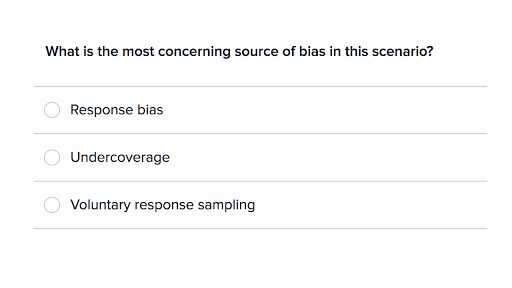Response Bias Definition Statistics
The complete non response bias and response bias definition statistics guide.
Response bias definition statistics. While there is nothing wrong with survey research and the. First we will discuss response biases. Response bias also called survey bias is the tendency of a person to answer questions on a survey untruthfully or misleadingly for example they may feel pressure to give answers that are socially acceptable. These biases are prevalent in research involving participant self report such as structured interviews or surveys.
Response bias is a statistical term that describes a simple issue. In most cases if your survey is well designed that results in the participant agreeing with at least two contradictory statements. This can obviously skew your data and bring the wrong results and it usually isn t because anyone wants to mess with your results. Acquiescence bias is a form of response bias where participants respond in agreement with all questions within the survey.
Response bias can be induced or caused by numerous factors all. Some examples of response bias are given below. Response biases can have a large impact on the validity of questionnaires or surveys. People can t always answer surveys honestly and accurately.
Such circumstances lead to a nonrandom deviation of the answers from their true value. Response bias is a general term that refers to conditions or factors that take place during the process of responding to surveys affecting the way responses are provided. A survey is a powerful tool to use when gathering data. The respondent may not be aware that they aren t answering the questions in the way the researcher intended.
Facebook twitter reddit pinterest email linkedin whatsapp. Sam has conducted a survey to get more information about healthy diets. In other words it will throw your results off or invalidate them completely. We can use it in various fields such as for in academic research understanding people s opinions on a marketing campaign or for collecting.
The format of the question or the nature of the previous questions may. It can also result in higher variances for the estimates as the sample size you end up with is smaller than the one you originally had in mind. In survey sampling response bias refers to the bias that results from problems in the measurement process.
